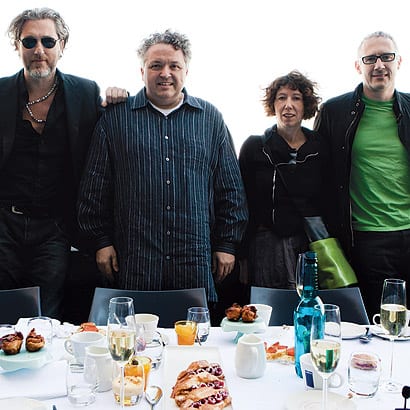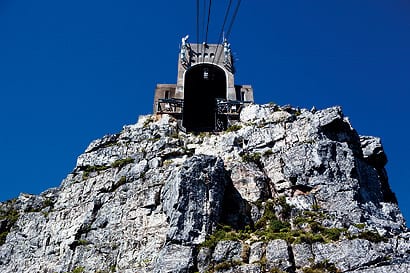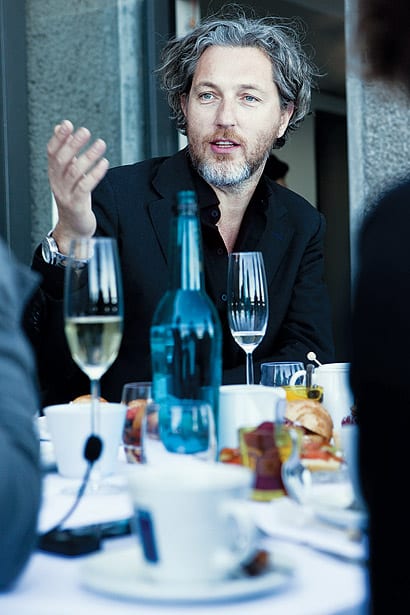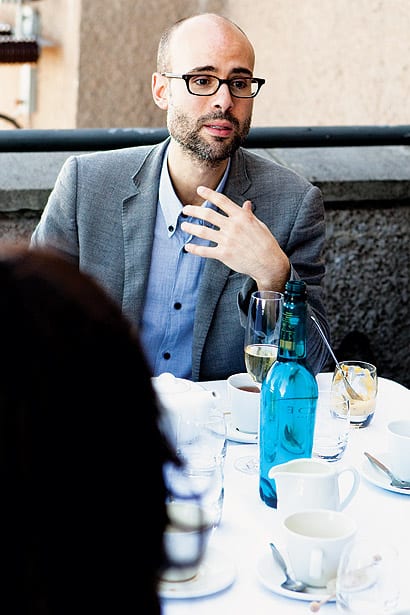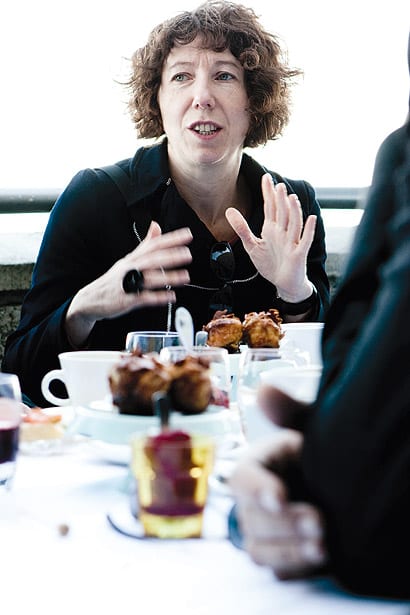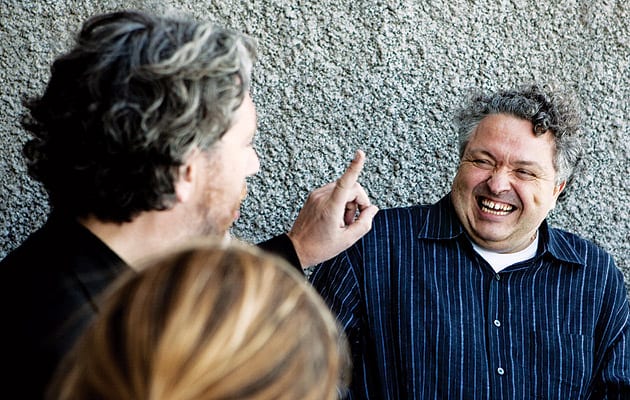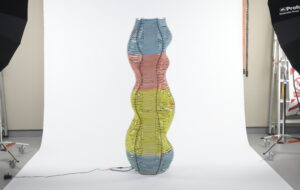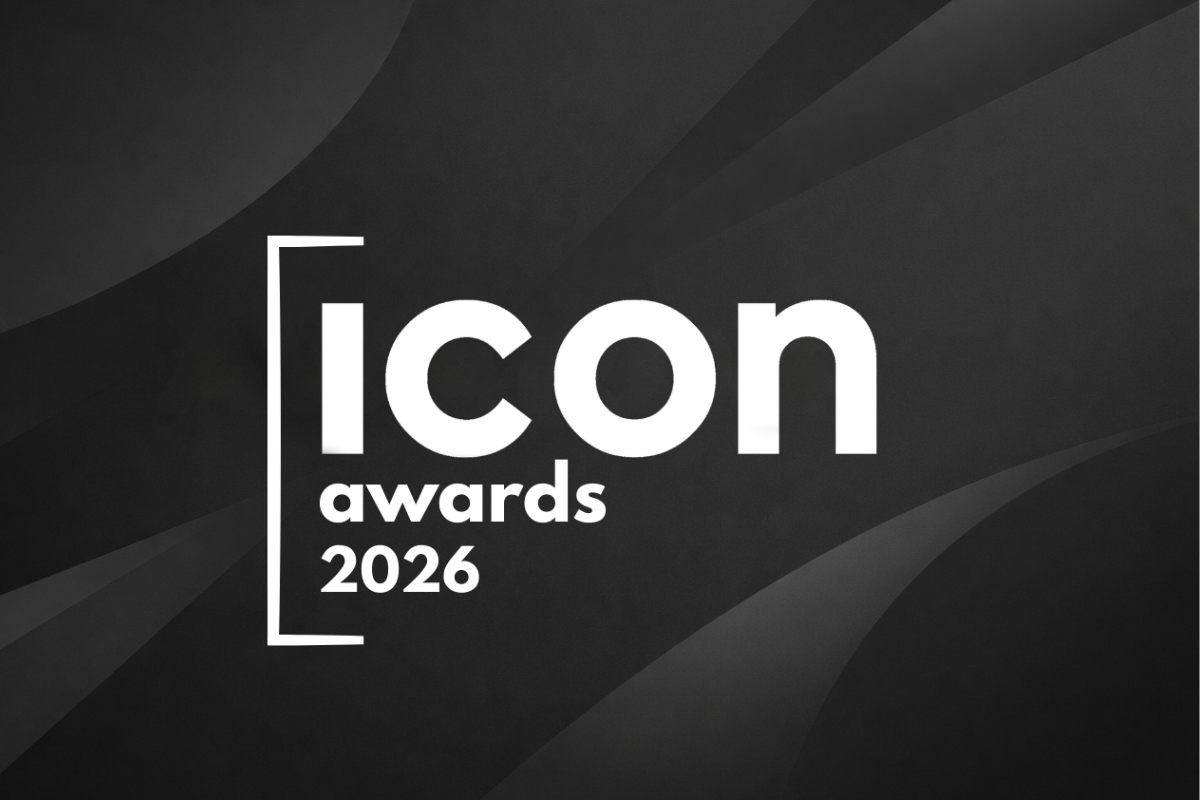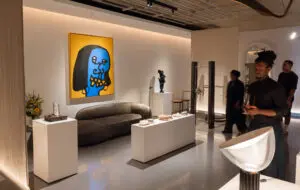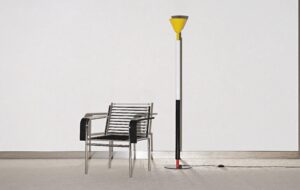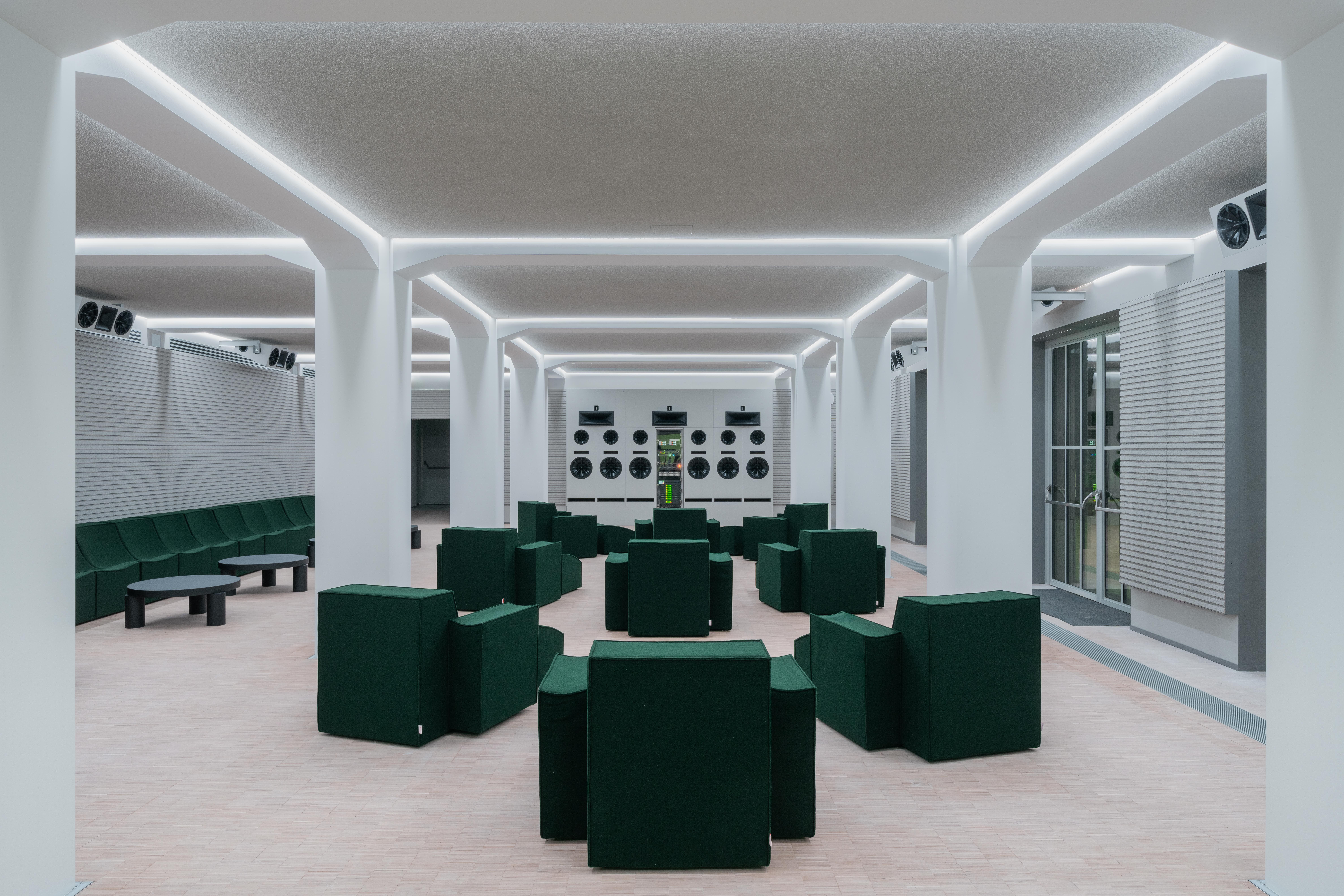|
Conversation between Bruce Mau, Marcel Wanders and Dunne & Raby, moderated by Justin McGuirk, at Design Indaba. Justin McGuirk The conference we’ve attended these past few days reflected the fact that things have really changed in the world over the past six months, and I’d like to ask what the design community can do in the grand change agenda. I see this as a three-way conversation between very different parties. Bruce is an advocate of change in the designer-cum-politician style; I see Fiona and Tony as advocates of the near future who are constantly experimenting with what might be possible; and Marcel, you bring two things: one is the practical face of the design business but also an irreverence for politically correct discourse. Bruce Mau We may be different in certain respects, but there are a lot of similarities in our underlying ambitions. One of the big challenges we face is making new, more intelligent ways of doing things – more compelling and successful, more sexy, delightful and humane. One of the big problems in the environmental movement has been 40 years of “no”. JM So you’re saying that we’ve been in the grip of vested interests, whether big business, the oil industry or government? BM For me it’s not so deliberate. I think people ascribe intentionality where there is simply systematic stupidity or fumbling. If you think of the car, it’s probably the single most successful design development in human history, and it has produced some of the worst and most difficult challenges we face in the world. When we invented the car we solved the problem that we defined. But we didn’t define that other problem. Marcel Wanders There is this idea that people are more intelligent than animals because men are able to look three steps ahead and animals can’t. And I sometimes think that sheep are perhaps able to think 10 steps ahead, and that is why they do nothing. [Laughter] This is why we make so many mistakes because we think we can look three steps ahead but we cannot. Especially when you work in the world of designers – we “change the world” and that is a very strange responsibility. BM I think that condition is changing a lot. One of the things we looked for when we did Massive Change [the book and exhibition] was to see if we were articulating global systems. If you go back to the original idea of Arnold Toynbee’s, which is “to imagine the welfare of the whole human race as a practical objective”. It’s now 50 years later. If he was right, we should be visualising and articulating global systems so we can start to make better decisions. And that’s what we saw. We are slowly building a knowledge base that’s starting to inform the way we do things. People are starting to wake up to the nature of the challenges we face. JM Can I just ask, does everybody here feel that something has changed in the past year, that there is a receptiveness to doing things differently, or is it just a mirage? BM I think it’s coming in a much longer curve. I think when I said a crisis is a terrible thing to waste, I think that’s a bit of a shock that wakes people up from their cash-padded existence to the fact that we need to do things differently. People are suddenly saying the things that we’ve been doing were not really very bright. If we’re going to move forward we need to think about new ways of doing things. When we started Massive Change about four years ago we saw a global movement happening that was not well articulated. To a large degree it’s still invisible, but it is really taking shape.
image: Jonx Pillemer MW The problem we have today is completely artificial. The real problems have been visible for such a long time already. BM What is the artificial problem? MW The artificial problem is that the banks organised themselves really badly. I think we’re now reacting to a technical problem but not the real problem. JM The question is whether this current economic crisis is the catalyst that makes us finally deal with the more fundamental problems that have been around for so long. MW It could work that way, and I hope that it will, but I’m not seeing it. Because we’d love to solve the technical problem first, then perhaps we have time left. JM So if there’s a quick fix then we’ll take it? MW Absolutely. Tony Dunne Isn’t it also about evolving new desires? You could say there are too many cars and they’re damaging the environment, but unless we actually desire something different … I don’t mean as designers but as people who consume these things. That’s the role design can play: creating new desires, or encouraging them. BM We invented those desires in the first place. People did not desire the car 200 years ago – we produced it. There is a kind of cynical dimension, too, of inventing desires that are unnecessary. I would be looking to try to maximise those. What is exciting to me is seeing young people and their commitment to a new definition of what design is going to become.
The cable car station on Table Mountain, the venue for the conversation (image: Jonx Pillemer) Fiona Raby Designers are definitely changing with the younger generation. It’s less materialistic, more about gathering and eating; it’s experiential – just experiencing things and enjoying them but not necessarily having things. MW It was the same when we were young! FR I think it’s different. JM There is this new movement in architecture which is all about participation. And internet culture is becoming all about participation. Young people like the idea of doing things together and communicating constantly. There’s been a subtle shift in the way people do things through social networking. Even I’m too old for it – it’s people in their twenties or teenagers doing it. TD But do they have dreams? When we were growing up in the Sixties and Seventies [Laughter] OK, the Nineties … there were all these dreams about travelling to the moon that you were just born into. They’re all popping one by one now. Are we going to dream new dreams or are we just panicking and running around trying to put fires out? BM This young guy came up to me after my presentation and he described the problem he is facing. He said: “The feeling that I have is like trying to put hazy things into fixed boxes – like trying to put clouds into boxes.” It’s clear that there is an energy to get to a clear articulation, to move beyond the idea of the singular ideology or solution, which has plagued our society, to a new diverse, plural, collaborative, connective way of thinking, and that’s exciting. It’s not been named or clearly defined but it is emerging. FR There’s an insecurity to it though, that when you’re connected to lots of people there is no direction. There is a sort of fuzziness to all this interconnectedness. Maybe it’s just existential angst. [Laughter] Our students are amazing. They are connected and fearless. Before we know it they’ve emailed philosophers and Twittered and all these things but there is a worry. TD I think there is a kind of conformism to the group thing. There is a “Let’s check what everyone else thinks”, where as when you were disconnected you would just act. FR It’s about trying to be holistic. It takes faith because you don’t have a strong direction or a definite goal, you have to feel for the edges.
Marcel Wanders (image: Jonx Pillemer) BM And that is a revolution. In our experience with organisations, especially educational organisations, the idea of a non-defined objective where we know the qualities of experience we want to produce without knowing what the end is, is unthinkable. In some ways it’s almost the definition of design. But for education, because schools are committed to measurement, its about constantly looking to define exactly what is going to happen. If you say, actually, the whole idea is that you don’t know, their hair catches fire. JM This is very idealistic, because governments don’t see it this way, do they? They set targets, for instance, to reduce carbon emissions by 20 per cent. MW It’s funny because, going back through my life, I have always had clear goals: I’d have my five-year plan. Two or three years ago I started to think it was superficial and I decided that you cannot have goals any more because if you are really creative you do new things; you cannot decide to go there because you are not there yet. You can only decide what direction to go. TD Rather than having a goal, you have an ethos. When opportunities come your way you apply your values to turn left or right. MW I wouldn’t expect organisations to work that way because it’s too out of control. BM I think the whole enterprise is being reconsidered. There’s this project by Paul Hawken’s Natural Capital Institute called the Wiser Earth project to make an inventory of all the organisations in the world who are working to solve social and ecological problems, and they already have 105,000. If you think about the whole NGO sector, it’s basically saying let’s take this model of enterprise and attach it to a purpose, and the purpose isn’t profit, the purpose is a contribution to an improved condition. So it’s actually starting to introduce models of a new kind of ethic. I think of the crisis not as an economic one but as a social, ethical, ecological and economic crisis all rolled together into one thorny beast of a problem. JM So you’re talking about the demise of capitalism, effectively? BM It’s not so much the demise, it’s about understanding how best to deploy the models of the market and how best to deploy social models and new connectivity models. When I made the presentation about what we’re doing in Denver, one of the journalists said: “You’re totally socialist.” And I said, well, actually I don’t think in that kind of binary opposition of left and right, I think in an axis that is 90 degrees to that which is about advanced and retrograde. And you can see advanced things going on across the whole spectrum. Take someone like Mohammad Yunus, he’s using the market as a model to deliver positive human impact. On the other side you have people like Jaime Lerner in Brazil, using the social to deliver the best conditions for economics. So I don’t think they’re at odds with one another. But I think you’re right about this being a new kind of ethic. MW It feels like we’re going into rehab.
Justin McGuirk (image: Jonx Pillemer) BM Well it is like we’ve been in a drunken stupor. TD It was unrestrained, being able to do really whatever we want, consume whatever we want, and then as you say, there’s a technical problem making us realise that somehow these unleashed desires have to be redirected. It wasn’t necessarily a bad thing, it was just enjoying life, enjoying what the system allowed us to enjoy. JM Bruce, to promote your foundation you’ve started resorting to a kind of “change” propaganda. Maybe that’s necessary. It’s like the good news channel. We need to change news-making so it’s not all bad news. If people realise that there are a lot of good things happening they switch to that mode of thinking. TD If a million people cancelled their subscriptions to the Wall Street Journal things would change. It almost seems that it’s over to us to stop doing things. MW I believe it’s our generation that has to solve this. We are the people able to do it. FR But I wonder, how is it possible to keep the younger generation happy that this kind of fuzziness, the no-goal condition, is actually sustainable and desirable, rather than going back to an old condition of singular [thinking]. We work with engineers and technologists and it’s all goal oriented. Trying to unpick this linear process is what our work has been about. We never get science funding because we can’t write proposals that are goal orientated, that can guarantee outcomes. How can you write the fuzzy stuff into funding applications? Science gets all this money and it’s all goal orientated, so to put the ethic and the social stuff into it is impossible at this moment. BM I think there are projects moving in that direction. There a 105,000 organisations in some way committed to that way of thinking and it’s so diverse. Paul Hawken does this incredible presentation about this new condition, there’s a wonderful video online, and he talks about diversity. He says we’ve had these singular ideologies that were at war against one another when in fact what we needed was complexity and diversity. If you think about it ecologically, we know as ecologists that that’s where the strongest systems are. Strong systems are not singular, strong systems are the diverse ones. MW And what about financial systems? That’s our little technical problem. BM What’s happening now is a redefinition of wealth away from a singular definition of money. So people are starting to think about a wealth of information and connectivity, these are new forms of wealth that we’re inventing. One of the things we looked at in Massive Change was that the market is not a natural environment, it’s a designed space, and how we design it determines what has value, and it’s radically being reconceived. There are all kinds of new markets being invented in the exchange of values that are entirely different. Look at something like freecycle, which is an online free distribution of unused things. You put something you want to get rid of on your front porch, you put it on freecycle and at the end of the day someone else is using it. There’s no money involved. It’s a huge area of redesign.
Fiona Raby (image: Jonx Pillemer) FR Our generation has the mentality to pass on, but the younger generation has the network. They’re not listening to authority, and are bypassing official channels. That’s why I am more hopeful for the younger generation than for ours. The power structures can be unpicked more from the younger generation than ours. BM One of the things we have to offer is to get out of the way. MW It is too easy to say the next generation will do it. FR I’m not saying that. BM I’m not saying that either. TD It’s that we are trying to take responsibility for our actions but we are somehow tangled up in it all, more than the next generation. FR I think we can give them courage, confidence and value systems so they can deal with messy situations and not have insecurities. Because they’re going for it, but there’s a little niggle going on of, well, should this be more goal orientated? And we’re saying no, this is life. BM You need to promote and communicate new possibilities. One of the most interesting things we encountered in Massive Change was this idea from Stewart Brand who said: “If people think things are bad and getting worse they behave selfishly”. It’s a natural response to protect yourself and your family and take what you can while you can still get it. On the contrary, when they see people investing in the future they want to be a part of that. It goes back to the question of the news, because the reality is incredibly positive but you get the feeling we are going to hell in a handcart. All I hear is that “it’s over”. We need a voice to say look at what people are really doing – it’s incredibly positive. If you see 105,000 organisations moving this way you think how can I be part of that? JM But I also see old structures firmly in place. Take the car industry in America: even though it’s increasingly moribund, Obama’s not going to defy those unions and retrain those people to make electric cars. The vested interests are still so powerful. But if you really wanted to switch everybody to making electric, you could do it.
The view from the balcony on Table Mountain where the conversation took place (image: Jonx Pillemer) BM There’s actually amazing things going on in that regard. One of the things we underestimate is the capacity for reorientation. What happened during the Second World War was that in something like 14 months America retooled the entire American industrial system. They went from producing consumer goods to confronting this problem in some insanely small amount of time. So we know that these things can be done. MW We’re the old world, we’re more slow. BM But that’s where America and the new world can actually contribute a lot. If you said to me three years ago Bush is out Obama’s in I’d have said you’re crazy. MW I’ve been teaching quite a bit, as soon as I left school, and I always knew exactly what to say about how design should be, and then at one point I had no idea any more, which was better because I was just supporting. I would be completely uncritical and love everything they dreamed of doing. The only thing I think you should do as a teacher is support the crazy, stupid ideas people have, because why would you tell people what to do when you don’t know yourself. And I started to see how difficult it was to be that way in a schooling situation. JM People want to be told what to do. MW It’s not about teaching creativity its about teaching people what to do and it’s really fucked up. After that I quit teaching. Now when they ask me I say I can stay only one year because I’m going to fuck up your whole system. So I’ve been an anarchist in schools and the thing is to be only non-critical, and say: “That’s fabulous!” TD I think there’s another position where you can understand the space students want to work in, from the crazy to the more subversive, and to try and work with them to produce better work. You don’t have to step back and say it’s all brilliant. But you don’t have to impose your perspective on what design is. BM One of the worst things that has happened in the arts is we conflated negative and critical. TD Yes, if you offer an alternative you’re being critical. It can be quite optimistic. MW The one thing that should be the most important word in design is fantasy. Why isn’t that the most important word in design? It’s lost behind piles of smart thinking. TD Fantasy can be serious – it’s a space of pure imagination. You can do all sorts of things in that. A lot of people don’t get to that space. I think there can be seriousness with fantasy but it needs to be attached to brilliant imagination. A lot of stuff happens in a very limited, mundane space whether it is fun or serious, it never gets to this visionary, imaginative zone. BM It’s probably because it goes straight to that negative space that is not really critical. The most critical thing we can do is to invent a new exciting way. You do that, and you blow everything away. JM In a way, Marcel, what I like about your idea of non-criticality – because it’s completely opposite to how I think – is students can’t be afraid of bad ideas. You’re never going to get anything interesting without a few bad ideas. MW I forbid people officially to make good things – after school you can make good things. In school you should make all the mistakes you can. That is the way to learn. JMThat siren means they’re closing the mountain because of the high wind. We need to get out of here. Thanks everyone. |
|
|
|
||
|
Bruce Mau (image: Jonx Pillemer) |
||

